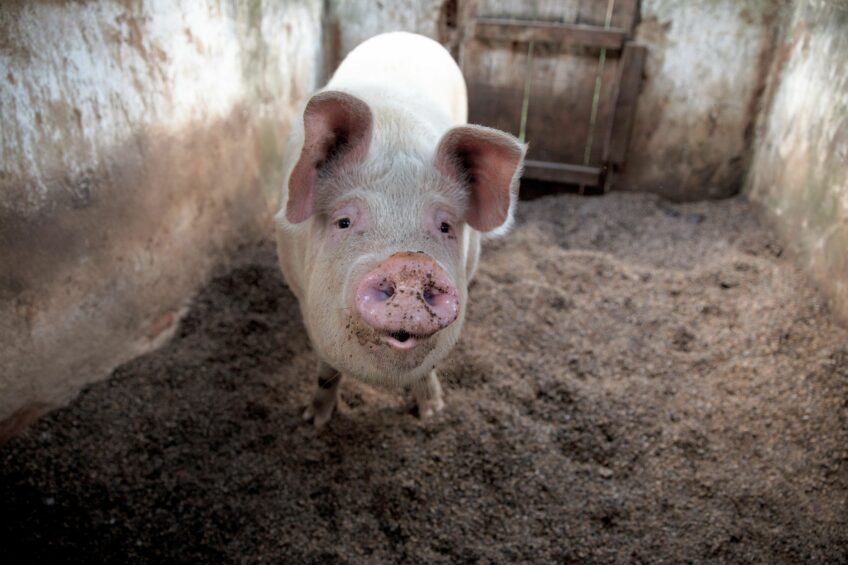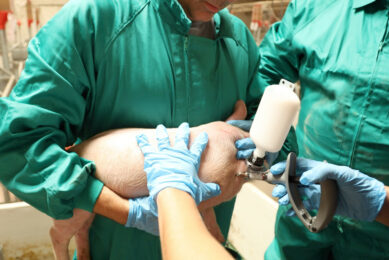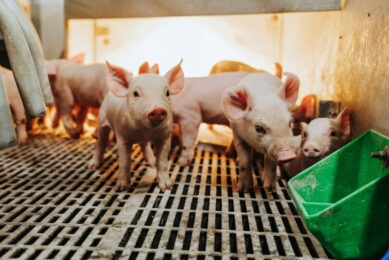How is Brazil getting on with eradicating CSF?

Brazil’s pig industry is well underway with a large plan to eliminate Classical Swine Fever (CSF – also known as hog cholera) from the entire country. Currently, Brazil’s CSF free zone in the south equals 95% of production and all pig meat exports. Increasing that area, however, is more desirable. Where is Brazil with this process?
In terms of Classical Swine Fever, Brazil can be subdivided into 2 zones. The south of Brazil consists of 15 states as well as the Federal District, which concludes the major pig producing states. CSF has not been found in any of those states since 1998. Only 11 states in the north are officially not declared free from CSF – but that is about to change, as Brazil is on track to overcome CSF once and for all.
CSF resurfaced in 2018
Probably encouraging the zero-tolerance policy is a resurfacing of the virus in recent years. Even though after 2009 there was a relative lull in CSF reporting for about 10 years, 3 states in the northeast (Alagoas, Ceará and Piauí) have again reported outbreaks from 2018. All of these outbreaks were found in backyard farms, and were quickly brought under control and notified to World Organization for Animal Health (OIE), see also Table 1.
Economic impact
The continued presence, however, does offer a huge risk to the producers which are located in the free zone in the south. The National Confederation of Agriculture and Livestock (CNA) has calculated that, should the virus enter the free zone, the economic impact could vary from anywhere between US$ 348 million to US$ 1.2 billion, depending on the scenario.
Strategic Plan
To avoid that type of consequence, the Brazilian Ministry of Agriculture, Livestock and Supply (MAPA), the Brazilian Association of Pig Producers (ABCS), local associations and other players created a plan in 2019, what could be best translated as the “Strategic Plan Brazil Free of CSF.”
 Guilherme Takeda, head of swine health at MAPA, explains, “The plan aims to strength the official veterinary service and surveillance system for swine diseases, including a systematic vaccination programme against CSF in states in the non-disease-free zone.”
Guilherme Takeda, head of swine health at MAPA, explains, “The plan aims to strength the official veterinary service and surveillance system for swine diseases, including a systematic vaccination programme against CSF in states in the non-disease-free zone.”First steps of CSF-free implementation
The first step in 2021 occurred between June and August in Alagoas state. In total, 112,594 pigs were vaccinated at 7,018 properties. The ministry and the other actors involved are building an evaluation report of this stage to guide upcoming actions.
The purpose of that pilot project was to carry out vaccination against CSF and identify possible difficulties that may affect performance of the plan. The goal is to run out a comprehensive CSF vaccination programme and replicate that methodology in the other states.
CSF outbreaks in recent years
The 49 outbreaks in Ceará in 2018-2019 as well as a recurrent outbreak in 2021 near the town of Marco, showed that a coordinated approach is necessary. Paulo Helder, president of the Association of Swine Producers of Ceará state (ASCE), says that the main challenge of the plan is to address this kind of backyard production. He says, “We strongly support the initiative to ban CSF all over the country and in our state. In advanced production systems, we have been free from CSF cases for a long time, even decades, but there continue to be outbreaks with non-professional farmers.”
Helder reinforces the role of producers associations to engage all growers at state level and admits the presence of the virus is a risk for all Brazilian pig sector. He analyses, “If we can manage to eradicate Foot-and-Mouth Disease (FMD) from cattle, we can do the same with CSF in pigs.”
Piauí state counted 28 outbreaks in recent years, of which 9 took place in 2021. The majority of those were found close to the city Demerval Lobão.
Where all cases in Ceará and Piauí were found more than 1,000 km from the CSF free zone, the ones in Alagoas were found relatively close to the CSF free zone. Those 2 outbreaks in 2019 took place near the town Traipu, close to the state border with Sergipe, but they appear to have been an isolated event.
Challenges in the CSF eradication
In Takeda’s opinion, pig vaccination is the best tool to control and eradicate Classical Swine Fever. There are mandatory procedures to undertake it properly and achieve success. He says, “The vaccination process carried out under insufficient control measures, without an adequate dosage or not establishing immunity in swine herds, can result in disastrous consequences such as the emergence of CSF variants and re-emergence of the disease.”
That is why he emphasises the main challenges for the CSF eradication plan are financial support for the vaccination programme, engagement of public and private actors and reinforcing operational capacities of veterinary services at state level. He says, “All those aspects require governmental and non-governmental policies to guarantee enough financing, organisation, management and execution of the CSF control and the eradication programme in Brazil.”
Next phases towards CSF eradication
There is no forecast when the eradication programme will be completed, as all provinces need to go through various phases. After the vaccination of at least 90% of the animals in all states, the evolution to the phase of recognition as a free zone is going to a next step.
Once the surveillance system demonstrates absence of the disease, vaccination may eventually be suspended. Finally, there will be a period of 24 months of observation, which includes the time needed to reduce effects of vaccination and a period of 12 months without vaccination in accordance to OIE Terrestrial Code.
Takeda adds, “We also are developing a study to better characterise swine production systems and epidemiological condition of the disease in the states of Amazonas, Roraima and Pará.”
Brazil: A very priviliged health status
Brazilian pig sector is well-known because of its privileged health status regarding the main threatening diseases. That is a result of sanitary controls and surveillance measures, maintaining the country’s competitiveness at global pig market levels.
Brazil has been breaking records in pork production and exports, and should CSF become present in other parts of the national territory, then it could compromise this important segment of the economy.
According to Food and Agriculture Organization (FAO), Brazil is the fourth main pork meat exporter and the fourth largest producer in the world. The country has produced 4.7 million tonnes and exported 1.13 million tonnes last year in accordance to a report by the Brazilian Association for Animal Protein (ABPA).
Thus, maintaining CSF free zone is a priority to avoid diseases, such CSF or African Swine Fever (ASF), and their severe economic and social impacts all over the country. Takeda finishes to say, “Acting in the non-free zone is pivotal to reduce risks of CSF virus in the current free zone as well.”











